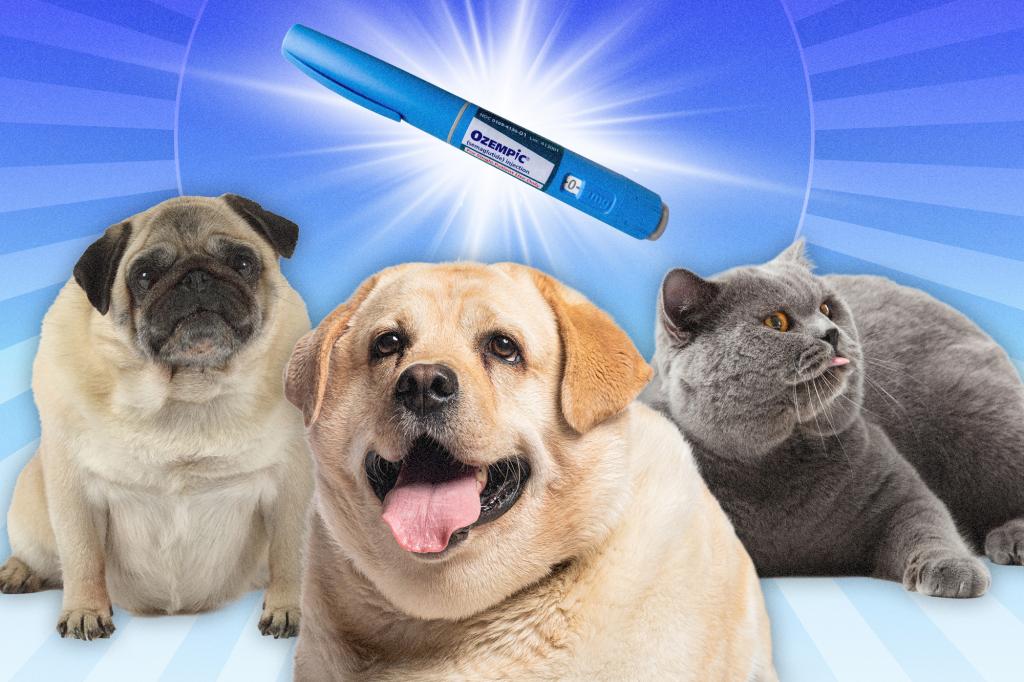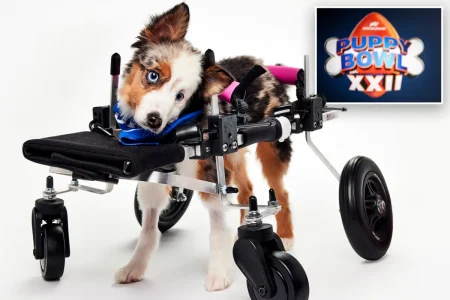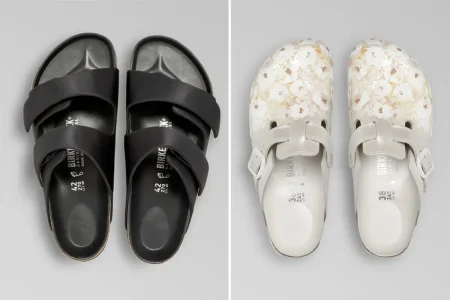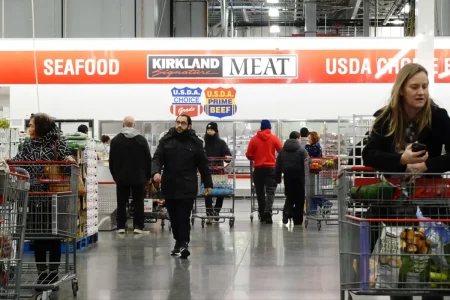Summarize and humanize this content to 2000 words in 6 paragraphs in English
Life’s ruff enough without the added challenge of getting your pudgy pup or tubby tabby to slim down.
America’s obesity crisis extends beyond humans — studies suggest that around 60% of dogs and cats nationwide are overweight.
The consequences are far from fluffy. Those extra pounds can lead to serious health issues, sky-high vet bills and fewer years with your furry friend.
Enter the Ozempets era.
Pharmaceutical companies are sniffing out new territory, tapping the same science behind blockbuster weight-loss drugs like Ozempic and Wegovy to develop similar treatments for pets.
One biotech firm, Okava, expects to roll out its animal-friendly version by the end of the decade — hoping to give your portly pooch or hefty house cat a chance at a leaner, longer life.
A paw-scription for weight loss
Traditionally, vets have pushed lifestyle changes to slim down pets, but getting Fido to cut back on treats isn’t always a walk in the park.
“Caloric restriction, or fasting, is one of the most well-established interventions for extending the lifespan and improving metabolic health in dogs. But it is also one of the hardest to maintain,” Okava CEO Michael Klotsman said in a statement earlier this year.
To address the problem, Okava and Vivani Medical are partnering to develop OKV-119, a long-acting implant designed to support weight loss in dogs and cats.
Roughly the size of a standard tracking chip, the device delivers a steady dose of exenatide for up to six months.
Similar to semaglutide and tirzepatide — the active ingredients in human drugs like Wegovy and Zepbound — exenatide imitates a hormone called GLP-1, which helps decrease appetite, increase feelings of fullness and slow digestion.
“OKV-119 mimics many of the physiological effects of fasting … without requiring significant changes in feeding routines or disrupting the human-animal bond that often centers around food,” Klotsman explained.
But don’t worry — your pet won’t go on hunger strike.
“What owners should expect to see is their pet eating appropriate portions without the previous food obsession,” Klotsman told The Guardian. “They’ll still eat regularly and show interest in meals, just without the excessive begging, scavenging or gulping behavior.”
Early studies in cats showed promising results, with small doses of exenatide helping felines reduce their calorie intake and shed at least 5% of their body weight over 112 days.
The trial is now being expanded to include dogs, and if successful, the companies aim to launch OKV-119 commercially by 2028 or 2029.
That could be a game changer for the nation’s pets, which are increasingly tipping the scales.
In 2022, veterinarians classified 100 million dogs and cats as overweight or obese — up from 80 million just five years prior, according to the Association for Pet Obesity Prevention.
That’s not just extra fluff. Studies show that overweight dogs live up to 2.5 years less than their slimmer peers and often have a lower quality of life.
Among cats, chubbier felines ages 8 to 12 face a 2.8 times higher mortality rate compared to their leaner counterparts, according to Manor Veterinary Hospital.
“OKV-119 represents an additional tool for veterinarians treating pets where conventional approaches have been insufficient, similar to how GLP-1 therapies have provided new hope for human patients struggling with obesity despite their best efforts with diet and exercise,” Klotsman told The Guardian.
Fur-ever young
Americans love their pets. A recent poll found that 52% of dog owners consider their canine companion’s health just as important as their own, while 41% say it’s even more important.
As drugmakers like Okava race to help animals live longer, healthier lives, research suggests our pets are already doing the same for us.
Studies have found that owning a pet can ease stress, anxiety and other negative emotions while providing companionship that reduces loneliness and feelings of social isolation.
There are physical perks, too. One study found that dog owners are 34% more likely to get the recommended 150 minutes of exercise per week than those without.
Pet owners also tend to have lower blood pressure, cholesterol and triglyceride levels, giving their heart health a major boost, according to the Centers for Disease Control and Prevention.
Taken together, experts say pets are a powerful longevity tool.
A 2019 study found dog owners have a 24% lower risk of early death compared to non-owners. For those with prior heart attacks or strokes, the benefit jumps to 31%, according to the American Heart Association.
Felines help as well. One study found that past or current cat owners were 37% less likely to die from a heart attack and 26% less likely to die from cardiovascular disease than non-owners.














